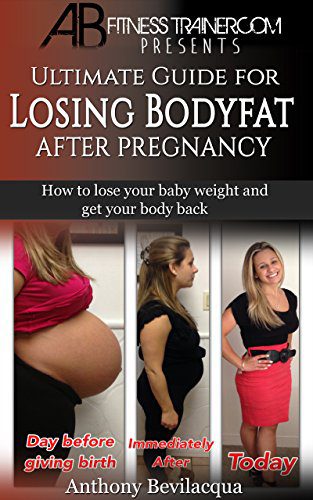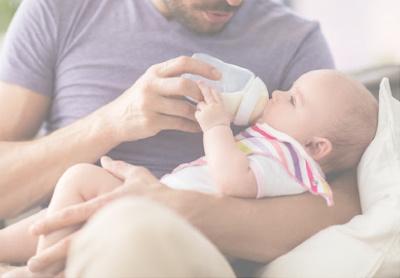How Much Weight Do You Lose After Childbirth: The Ultimate Guide
After childbirth, women typically lose around half of the weight they gained during pregnancy in the first six weeks. From there, they continue to lose the remaining weight through a combination of factors such as breastfeeding, healthy eating habits, and regular exercise.
Losing weight after childbirth is a common concern for many women. Pregnancy often leads to weight gain, and new moms are eager to shed those extra pounds. How much weight do you actually lose after childbirth? In the initial six weeks after delivery, women typically lose about half of the weight gained during pregnancy.
However, the rate of weight loss varies from person to person and depends on factors like breastfeeding, diet, and exercise. We will explore the factors that contribute to postpartum weight loss and offer tips for achieving a healthy and sustainable weight loss journey after having a baby.
Factors Affecting Postpartum Weight Loss
After giving birth, many women are eager to shed the extra pounds gained during pregnancy. However, postpartum weight loss is influenced by several factors. Understanding these factors can help women navigate their weight loss journey more effectively. Here are three key factors that can impact postpartum weight loss:
Hormonal Changes And Their Impact On Weight Loss
Hormones play a crucial role in regulating various bodily functions, including weight management. After childbirth, a woman’s hormone levels undergo significant changes, which can affect her ability to lose weight.
During pregnancy, the body produces high levels of estrogen and progesterone, which contribute to weight gain and fat accumulation. However, after giving birth, these hormone levels drop, and the body starts to gradually return to its pre-pregnancy state. This hormonal shift can have a positive impact on postpartum weight loss.
One hormone that particularly affects weight loss is leptin. Leptin is responsible for regulating appetite and metabolism. Low levels of leptin postpartum can lead to increased hunger and slowed metabolism, making it more challenging to lose weight.
The Role Of Breastfeeding In Postpartum Weight Loss
Breastfeeding not only provides numerous health benefits for both the mother and the baby, but it can also aid in postpartum weight loss. When a woman breastfeeds, her body burns extra calories to produce milk, which can help accelerate weight loss.
Research suggests that breastfeeding mothers may lose more weight compared to those who do not breastfeed. The hormonal process involved in lactation may contribute to increased calorie burning and fat mobilization. However, it’s important to note that individual weight loss experiences can vary, and breastfeeding alone is not a guarantee of significant weight loss.
Metabolism And Its Influence On Postpartum Weight Loss
Metabolism refers to the body’s process of converting food into energy. It plays a crucial role in weight management and can impact postpartum weight loss.
After childbirth, some women may experience a temporary slowdown in their metabolism. This can be attributed to factors such as hormonal changes and sleep deprivation, both of which are common during the postpartum period. A slower metabolism can make it more challenging to lose weight.
However, there are strategies that can help boost metabolism and promote postpartum weight loss. Engaging in regular physical activity, such as cardio exercises and strength training, can help increase muscle mass and boost metabolism. Additionally, focusing on a balanced diet that includes nutrients essential for postpartum recovery can also support a healthy metabolism.
Overall, it’s important to remember that postpartum weight loss is a gradual process, and every woman’s journey is unique. By understanding the various factors that can influence weight loss, women can make informed decisions about their postpartum health goals and develop a plan that suits their individual needs.
Understanding The Immediate Weight Loss After Childbirth
One of the most common concerns for new mothers is how much weight they can expect to lose after giving birth. Having a baby is a transformative experience, both emotionally and physically, and understanding the immediate weight loss that occurs postpartum can help set realistic expectations. In this section, we will explore three main factors that contribute to weight loss right after childbirth: the shedding of the placenta and amniotic fluid, water weight loss due to hormonal changes, and what is considered normal weight loss during the immediate postpartum period.
Shedding Of Placenta And Amniotic Fluid
During childbirth, the placenta, which provides nutrients to the baby throughout pregnancy, is expelled from the body. This expulsion can lead to an immediate reduction in weight. Additionally, the amniotic fluid surrounding the baby in the womb is also released. These two factors combined can contribute to a significant initial weight loss after childbirth.
Water Weight Loss Due To Hormonal Changes
Hormonal changes play a crucial role in weight loss after childbirth. During pregnancy, the body retains more water to support the growth and development of the baby. However, after giving birth, hormonal fluctuations signal the body to release excess fluid, leading to a decrease in water weight. This can account for a substantial portion of the immediate weight loss experienced by new mothers.
How Much Weight Loss Is Considered Normal In The Immediate Postpartum Period
It is important to have realistic expectations when it comes to weight loss immediately after childbirth. While every woman’s body is different, the average weight loss during the first few weeks postpartum is around 10 to 12 pounds (4.5 to 5.5 kilograms). This weight loss primarily consists of the shedding of the placenta and amniotic fluid, as well as the reduction of water weight. It is essential to note that this initial weight loss is not indicative of long-term weight loss goals and may vary depending on individual circumstances.
Postpartum Weight Loss Timeline
In the postpartum weight loss timeline, new mothers typically lose half of the weight gained during pregnancy within the first six weeks after childbirth. From there, it can take some time to shed the remaining baby weight, depending on individual factors and lifestyle choices.
Weight Loss During The First Week After Childbirth
During the first week after childbirth, new moms commonly experience a significant weight loss. This initial drop in weight is primarily due to the loss of the baby’s weight, placenta, and amniotic fluid. In addition, the uterus contracts, which helps expel any remaining fluids and decreases its size. These factors combined can result in an approximate weight loss of 10-12 pounds (4.5-5.4 kilograms) in the first week postpartum.
Weight Loss In The First Month Postpartum
In the first month postpartum, new moms can expect a gradual but steady weight loss. The exact rate of weight loss varies from woman to woman, but on average, most women lose 1-2 pounds (0.5-1 kilogram) per week during this period. This weight loss is a result of factors such as breastfeeding, which can burn additional calories, and a combination of healthy eating and gentle exercise.
Progression Of Weight Loss In The Following Months
As the months progress, new moms may continue to experience a steady weight loss. However, it’s important to note that every woman’s weight loss journey is unique, and individual factors such as metabolism, lifestyle, and genetics can influence the pace and amount of weight loss.
Generally, women can expect to lose the remaining pregnancy weight over the course of several months, with weight loss slowing down after the first month. By adopting a balanced and healthy lifestyle, including nutritious eating and regular exercise, new moms can support their postpartum weight loss goals.
To stay on track and maintain motivation, it can be helpful to set realistic expectations and focus on progress rather than perfection. Remember that the most important thing is taking care of yourself and your baby, and weight loss should be approached in a healthy and sustainable manner.
Tips For Healthy Postpartum Weight Loss
Looking to shed those extra postpartum pounds? Learn about how much weight you can expect to lose after childbirth and get helpful tips for healthy and sustainable weight loss.
Nourishing Your Body With Nutrient-dense Foods
After childbirth, it’s important to nourish your body with foods that are rich in essential nutrients. Incorporating nutrient-dense foods into your diet can help you recover faster and provide the energy needed for taking care of your newborn. Include a variety of fruits, vegetables, whole grains, lean proteins, and healthy fats in your meals.
Here are some examples of nutrient-dense foods that you can add to your postpartum diet:
- Spinach and kale: These leafy greens are packed with vitamins A, C, and K, as well as iron and calcium.
- Salmon: Rich in omega-3 fatty acids, protein, and vitamin D, salmon is a great choice for postpartum moms.
- Quinoa: This whole grain is high in fiber and protein, providing sustained energy throughout the day.
- Avocado: Full of healthy fats, avocados can help keep you feeling satisfied and provide essential nutrients.
Incorporating Physical Activity Into Your Daily Routine
Adding physical activity to your daily routine can help in shedding the postpartum weight. Start slowly and gradually increase your workout intensity as your body adjusts to the changes. Remember, the goal is not to push yourself too hard but to engage in low-impact exercises that promote strength and flexibility.
Here are a few ideas for incorporating physical activity into your postpartum routine:
- Take short walks: Start with short walks around your neighborhood, gradually increasing the duration and intensity.
- Join postnatal exercise classes: Look for local classes specifically designed for postpartum women, which can provide the right guidance and support.
- Try yoga or Pilates: These low-impact exercises can help strengthen your core muscles and improve flexibility.
- Include strength training: Incorporate light weightlifting or resistance band exercises to build muscle tone.
Setting Realistic Goals And Focusing On Overall Health Rather Than Just Weight Loss
During the postpartum period, it’s important to set realistic goals and focus on overall health rather than solely on weight loss. Your body has gone through significant changes during pregnancy, and it’s essential to give it time to heal and recover.
Here are a few tips for setting realistic goals and focusing on overall health:
- Be patient with yourself: Don’t rush the process. Embrace the journey and give your body the time it needs to adjust.
- Practice self-care: Prioritize self-care activities that promote mental and emotional well-being.
- Stay hydrated: Drinking an adequate amount of water can support your body’s natural functions and aid in weight loss.
- Get enough sleep: Restful sleep is crucial for your body’s recovery process and overall health.
Remember, every woman’s postpartum journey is unique. Focus on maintaining a healthy lifestyle, nourishing your body with nutrient-dense foods, incorporating physical activity, and setting realistic goals for long-term success and overall well-being.
Overcoming Challenges In Postpartum Weight Loss
After the incredible experience of childbirth, many new mothers find themselves facing the challenge of losing the weight gained during pregnancy. However, postpartum weight loss can be a complex journey filled with obstacles and setbacks. In this article, we will discuss some of the common challenges experienced by women during this period and provide strategies for overcoming them.
Dealing With Hormonal Imbalances And Their Impact On Weight Loss
Hormonal changes are an inevitable part of the postpartum period. These changes can significantly impact weight loss efforts. In particular, the hormone estrogen, which increases during pregnancy, can remain high even after childbirth. This can lead to water retention and make it challenging to shed those extra pounds.
To overcome this challenge, it’s essential to focus on building a healthy lifestyle that supports hormonal balance. Here are some strategies to consider:
- Include a combination of cardiovascular exercises and strength training in your fitness routine. This can help boost your metabolism and promote weight loss.
- Ensure that your diet consists of a variety of fruits, vegetables, lean proteins, and whole grains. These nutrient-dense foods not only aid in weight loss but also support hormonal balance.
- Stay hydrated by drinking plenty of water throughout the day. This can help reduce water retention and promote overall health.
- Consider talking to a healthcare professional about potential hormonal imbalances and appropriate treatment options, such as hormone replacement therapy.
Managing Stress And Emotional Eating
The postpartum period can be overwhelming, both physically and emotionally. Many women turn to food as a source of comfort or a coping mechanism for stress, which can hinder weight loss progress.
To effectively manage stress and overcome emotional eating, consider the following strategies:
- Take time for self-care activities that promote relaxation and reduce stress levels, such as practicing yoga, meditation, or deep breathing exercises.
- Engage in activities that bring you joy and provide a sense of fulfillment, such as pursuing a hobby or spending quality time with loved ones.
- Identify triggers that lead to emotional eating and find alternative ways to address those emotions, such as journaling, talking to a supportive friend, or seeking professional counseling.
- Focus on nourishing your body with healthy and satisfying meals rather than turning to unhealthy comfort foods.
Seeking Support From Healthcare Professionals And Other Mothers
Embarking on the journey of postpartum weight loss can feel overwhelming, but you don’t have to do it alone. Seeking support from healthcare professionals and connecting with other mothers who are going through similar experiences can tremendously impact your weight loss journey.
- Consult a healthcare professional, such as a registered dietitian or nutritionist, who can provide personalized guidance and assist you in developing a safe and effective weight loss plan.
- Join postpartum support groups or online communities to connect with other mothers who are on a similar journey. Sharing experiences and advice can provide valuable insights and motivation.
- Participate in postpartum fitness classes or engage in activities that offer a sense of community and support, such as mom-and-baby workout groups.
Remember, postpartum weight loss is a journey that takes time and patience. By implementing these strategies and seeking support, you can overcome the challenges and achieve your weight loss goals while prioritizing your overall well-being.

Credit: www.healthshots.com
Frequently Asked Questions For How Much Weight Do You Lose After Childbirth
How Much Weight Do You Lose Immediately After Giving Birth?
After giving birth, women typically lose about half of the weight gained during pregnancy within the first six weeks.
When Do You Lose The Most Weight While Breastfeeding?
Breastfeeding can help you lose weight the most in the first six weeks after giving birth. During this time, you can expect to lose about half of the weight gained during pregnancy. After that, weight loss may continue at a slower pace as it is influenced by various factors like diet and exercise.
What Is The Average Weight Gain After Pregnancy?
The average weight gain after pregnancy is around 25 to 35 pounds.
Is Postpartum Weight Loss Harder?
Postpartum weight loss can be harder due to hormonal imbalances. Pregnancy causes significant changes in hormones, which may not return to normal immediately. This can make weight loss more difficult for women after childbirth. Focus on exercise and nutrition for healthy postpartum weight loss.
Conclusion
Losing weight after childbirth is a gradual process that varies for every woman. It’s important to remember that the pregnancy weight was gained over a period of nine months, so it’s unrealistic to expect it to disappear instantly. Most women lose around 10 to 12 pounds immediately after giving birth due to the loss of the baby, placenta, and amniotic fluid.
The remaining weight will take time to shed through a combination of healthy eating, regular exercise, and breastfeeding. Remember to be patient and kind to yourself during this postpartum journey.








